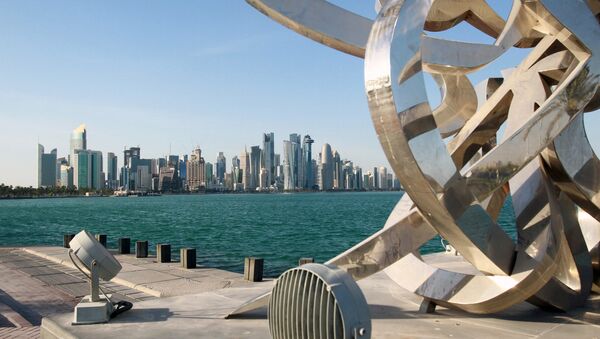However, Atef Abdel Jawad, professor at George Washington University and expert on US relations with Middle Eastern countries, told Sputnik Arabic that this approach is in fact a calculated move by the US leadership.
"The US wants to resolve the Qatari issue using the ‘carrot and stick’ approach: Trump carries the stick while Tillerson has the carrot," he explained.
According to professor Jawad, the US seeks to impose a blockade against Qatar in order to cut off funding and support for terrorist groups in Syria, Libya, Yemen and other countries.
Meanwhile, Arab studies expert Emil Amin told Sputnik that the words spoken by US politicians often tend to differ from their actions.
"The US leadership has rather vague notions about the state of affairs in the Gulf, which further undermines the balance of trust towards the US in the Middle East," he said.
And the situation is further exacerbated by the fact that "the White House resident does not have a political vision or political experience," Amin added.
In early June, Saudi Arabia, Egypt, Bahrain and the United Arab Emirates broke off diplomatic relations and communication with Qatar, accusing it of supporting terrorism and interfering in their domestic affairs. Kuwait acting as a mediator in the crisis, handed Doha an ultimatum with 13 demands dictated by the four Arab states, which Doha refused to comply with.


